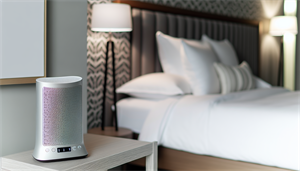Can sleep apnea cause miscarriage? Pregnant women diagnosed with sleep apnea often grapple with this worry, and current evidence indicates a troubling link.
This article will present key findings that illuminate the potential risks for both mother and unborn child, assessing how this sleep disorder may contribute to complications including miscarriage.
Key Takeaways
-
Sleep apnea in pregnant women can increase risks for both maternal and fetal health, including gestational diabetes, preeclampsia, and potentially leading to miscarriage or developmental issues in the fetus.
-
Non-invasive treatments like CPAP therapy alongside lifestyle modifications such as sleeping on the left side and using pregnancy pillows are effective in managing sleep apnea symptoms during pregnancy.
-
Regular napping may help alleviate symptoms of sleep apnea in pregnant women, and early diagnosis followed by suitable treatment options like CPAP, lifestyle changes, and, in severe cases, medical interventions are critical.
Understanding Sleep Apnea and Its Prevalence in Pregnancy
Sleep apnea is a sleep disorder marked by repeated interruptions in breathing during sleep, often causing loud snoring and daytime sleepiness. In pregnant women, the prevalence of developing sleep apnea, particularly in the third trimester, is up to 26%. Key symptoms may include loud snoring, gasping, and pauses in breathing during sleep. But how does pregnancy influence the occurrence of sleep apnea?
The onset of sleep apnea during pregnancy is often attributed to natural weight gain and elevated hormones, which become more pronounced as pregnancy progresses into the third trimester. Conditions such as obesity hypoventilation syndrome may contribute to sleep apnea in pregnant women. Acknowledging these factors aids in early diagnosis and management.
The Impact of Sleep Apnea on Maternal Health

Sleep apnea isn’t just a matter of disrupted sleep; it can have significant health implications for expecting mothers. For instance, sleep apnea during pregnancy can increase the risk of developing gestational diabetes and preeclampsia, a pregnancy complication characterized by high blood pressure and potential damage to organ systems, most often the liver and kidneys.
Pregnant women with sleep apnea also face an increased risk of developing gestational hypertension - high blood pressure during pregnancy. Moreover, according to data from the National Institutes of Health, patients with maternal sleep disordered breathing, such as obstructive sleep apnea (OSA), have a 2.47 percent risk of death before being discharged after delivery, compared to a risk of 0.13 percent for those without OSA. Clearly, managing sleep apnea is critical for the health of mothers-to-be.
Investigating the Link: Sleep Apnea and Miscarriage Risk
On top of the health risks for mothers, sleep apnea can also pose risks for unborn babies. Research suggests a link between sleep apnea and an increased risk of miscarriage.
We need to examine this link in detail and understand the contributing risk factors.
How Obstructive Sleep Affects Fetal Development
Obstructive sleep apnoea, also known as obstructive sleep apnea, can lead to a condition known as intermittent hypoxemia, characterized by sleep apnea affects such as:
-
Brief periods of low oxygen levels in the blood
-
Adversely affecting fetal development
-
Poor neural outcomes such as language and cognitive delays, attention deficits, and behavioral problems
-
Metabolic dysfunction
-
Oxidative stress
-
Inflammation
-
Altered glucose metabolism
Inflammation caused by sleep disorders like obstructive sleep apnea can have detrimental effects on placental function and fetal growth. This could potentially result in conditions such as stillbirth and fetal growth restriction due to excessive placental inflammation. Placental abnormalities can lead to a variety of developmental issues like preterm labor, fetal distress, and low birth weight in babies. This highlights the importance of early sleep apnea diagnosis and management in expecting mothers.
Snoring and Pregnancy Complications
Snoring may seem like a harmless, albeit annoying, symptom of sleep apnea. However, it can indicate more serious complications during pregnancy. Snoring is linked with negative delivery outcomes such as cesarean delivery and small-for-gestational age, as well as low birth weight.
Snoring during pregnancy has been linked with an increased risk of preterm delivery. Given that habitual snoring in late pregnancy affects between 11.9% to 49% of pregnant women, addressing this common symptom is key in reducing adverse pregnancy outcomes.
The Protective Role of Napping
While the risks of sleep apnea during pregnancy may seem daunting, there’s a glimmer of hope in the form of a simple, everyday activity - napping. Regular napping has the potential to alleviate the symptoms of sleep apnea, such as snoring and sleep-disordered breathing, which are linked to risks such as gestational hypertension and preeclampsia.
Napping also enhances sleep quality in pregnant women with sleep disorders, leading to an improved daytime sleep quality and overall better quality of life. For optimal benefits, it is advised for pregnant women at risk of developing sleep apnea to take naps that are 20 to 30 minutes in length, while avoiding late afternoon or evening naps that could potentially interfere with nighttime sleep.
Diagnosing Sleep Disorders in Expecting Mothers

Early diagnosis of sleep disorders in expecting mothers is key in preventing potential complications. Screening for sleep disorders should be considered at the beginning of prenatal care or during preconception consultations, utilizing assessments such as the Berlin Questionnaire (BQ) and the Epworth Sleepiness Scale (ESS).
Following the initial screening, the next step involves:
-
A physical examination
-
A referral to a sleep medicine doctor for confirmation of the disorder, such as obstructive sleep apnea
-
Overnight sleep studies, known as polysomnograms, which serve as the gold standard test for diagnosing obstructive sleep apnea.
A sleep study provides important data on the frequency of apnea episodes and other nighttime symptoms, assisting in assessing sleep apnea severity and determining the most effective treatment course.
Treatment Options for Sleep Apnea During Pregnancy

Managing sleep apnea during pregnancy involves a comprehensive approach to treat sleep apnea, from non-invasive therapies and lifestyle changes to medical interventions in severe cases. It is crucial to address this issue, as pregnant women can develop sleep apnea. We will now examine these treatment options.
Non-Invasive Treatments
Non-invasive treatments play a crucial role in managing sleep apnea during pregnancy. Continuous positive airway pressure (CPAP) therapy, for instance, is a safe and effective non-invasive treatment option. CPAP therapy utilizes a machine to deliver a constant flow of air pressure through a mask, helping to keep the airways open during sleep and alleviate sleep apnea symptoms.
It’s necessary to address any potential concerns related to the use of CPAP therapy. Patients might be worried about the appearance of wearing a CPAP mask during sleep. It’s important to discuss these concerns and reassure patients about the benefits of CPAP therapy for their health and their baby’s health.
Lifestyle Modifications
Lifestyle modifications can go a long way in managing sleep apnea symptoms during pregnancy. For instance, adopting the practice of sleeping on the left side can enhance blood flow to the uterus and fetus while also mitigating sleep apnea symptoms.
Similarly, the use of pregnancy pillows can provide support to the belly and back, promoting a more comfortable sleeping posture that facilitates the reduction of sleep apnea symptoms. Additionally, maintaining a healthy diet that encompasses a variety of:
-
fruits
-
vegetables
-
whole grains
-
lean proteins
-
healthy fats
Particularly antioxidant-rich fruits and vegetables, can support overall health and potentially alleviate sleep apnea symptoms.
Medical Interventions in Severe Cases
In severe cases of sleep apnea, medical interventions such as the use of decongestant medicines may be necessary. Decongestants can enhance nasal patency, sleep quality, and oxygen saturation level during sleep, helping to alleviate sleep apnea symptoms.
It is necessary to be mindful of potential risks and side effects associated with decongestant use. Early pregnancy exposure to certain oral decongestants is linked with an increased probability of various birth defects. Systemic decongestants may lead to side effects like tachycardia, anxiety, tremors, and insomnia. These factors must be considered when determining the most suitable treatment approach for sleep apnea during pregnancy.
Preventative Measures and Strategies for Pregnant Women With Sleep Apnea
Prevention is better than cure, and this holds true for managing sleep apnea during pregnancy. One of the key preventative measures is maintaining a healthy weight, which can help in reducing blood pressure and the likelihood of excessive weight gain, both of which are linked to sleep apnea.
Furthermore, adopting the practice of sleeping on the left side with knees bent can alleviate sleep apnea symptoms and improve overall comfort during pregnancy. If experiencing potential sleep apnea symptoms, it’s important to consult a doctor for early diagnosis and preventive care.
Long-Term Considerations for Mothers and Babies
Sleep apnea during pregnancy doesn’t just pose short-term risks; it can also have long-term implications for both mother and baby. For mothers, experiencing sleep apnea during pregnancy can elevate the likelihood of developing cardiomyopathy and congestive heart failure.
Moreover, children born to mothers with untreated sleep apnea may face increased susceptibility to diabetes, obesity, and other weight-related concerns throughout their adult lives. They may also be more vulnerable to neural conditions like autism spectrum disorder, attention-deficit/hyperactivity disorder, intellectual disability, and schizophrenia. This highlights the need to manage sleep apnea not only during pregnancy but also in the post-natal period.
Summary
In the journey of pregnancy, sleep apnea can pose significant challenges. From impacting maternal health to affecting fetal development and increasing miscarriage risk, the implications are far-reaching. However, with early diagnosis and effective management through non-invasive treatments, lifestyle modifications, and medical interventions when necessary, these risks can be mitigated. As we wrap up our discussion, remember that prevention is key, and long-term considerations are just as crucial as addressing immediate concerns.
Frequently Asked Questions
Can sleep apnea affect pregnancy?
Sleep apnea during pregnancy can lead to long-term health complications for both the mother and the baby, including an increased risk of high blood pressure, preeclampsia, gestational diabetes, and premature delivery. It can also lead to low birth weight and small for gestational age infants.
How long will it take to reverse damage from sleep apnea?
Treating sleep apnea with CPAP for 12 months can almost entirely reverse damage done to white matter, improving sleep and symptoms while reducing risk for cognitive issues.
What happens if you let sleep apnea go untreated?
Untreated sleep apnea can lead to serious health complications such as type 2 diabetes, strokes, heart attacks, and a decreased lifespan. It is important to seek treatment to mitigate these risks.
What is the most serious potential consequence of sleep apnea?
The most serious potential consequence of sleep apnea is cognitive decline, memory loss, and attention problems, with extreme cases leading to dementia. In addition, untreated sleep apnea can also lead to high blood pressure, heart disease, stroke, diabetes, and early death.
How does sleep apnea affect maternal health?
Sleep apnea during pregnancy can increase the risk of developing gestational diabetes, preeclampsia, and gestational hypertension. It's important to address sleep apnea for maternal health.


